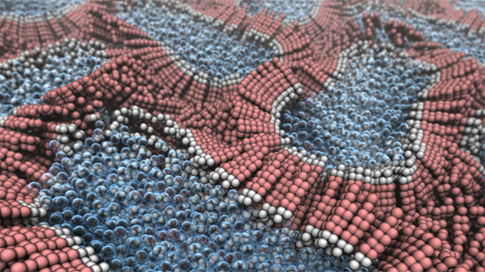Intel is committed to fostering an open ecosystem, including technical contributions to many open source projects that have a direct impact on the real world. One such example is GROMACS, a molecular dynamics software package for simulating proteins, lipids and nucleic acids for the design of new drugs. The recently released GROMACS 2022 was developed using SYCL and oneAPI, showing excellent performance on multiple architectures, including GPUs based on Intel Xe architecture.
"GROMACS is one of the most widely used open source molecular dynamics applications in the world," said Roland Schulz, Parallel Software Engineer at Intel. "The simple reason is that simulations performed with this application help us better understand proteins ranging from small to large in vivo. to the molecular dynamics of cosmic galaxies. Notably, our collaboration with GROMACS, developed and optimized using oneAPI, allows Intel to participate in major advances in drug discovery and expands GROMACS' open development across multiple computing architectures . . This is all achieved in partnership with the open source community that we hold so dear."
Molecular dynamics simulations of GROMACS are powered by oneAPI, and together with projects such as Folding@home, an international distributed computing project, have contributed to the identification of key drug solutions for diseases such as breast cancer, new coronary pneumonia, and type 2 diabetes. Molecular dynamics simulations are widely and successfully used in modern drug discovery and development. These simulations provide researchers with the structural information of biomacromolecules they need to understand structure-function relationships, which can be used to guide the drug discovery and design process. Computational tools like GROMACS, used in drug discovery, help researchers design and evaluate new drugs more efficiently while saving resources.
The GROMACS R&D team at Stockholm University and the Royal Institute of Technology in Sweden, led by biophysics professor Erik Lindahl, has led the development of the GROMACS molecular dynamics toolkit, one of the most widely used high-performance computing applications in the world. Molecular dynamics is computationally centric and frequently iterative, making it one of the most time-consuming high-performance computing applications. Billions of calculations involve millions of lines of code.
OneAPI is an open, unified programming model for CPUs and accelerators and supports computer architectures from multiple vendors, which helps Prof. Lindahl and his team expand GROMACS' support for heterogeneous hardware. This is due to the use of cross-architecture, cross-vendor open standards to improve productivity. Based on these standards, oneAPI programming simplifies the software development process, provides accelerated computing performance without the need for a specific programming language or vendor, and allows integration of existing code, including OpenMP.
As part of the oneAPI optimization effort, Lindahl's team migrated CUDA code from GROMACS that only runs on Nvidia hardware to SYCL by using the Intel® DPC++ Compatibility Tool (part of the Intel® oneAPI Base Toolkit), which typically Can automate 90 to 95% of code migration work1,2. This allows its team to create a new, independently portable, cross-architecture codebase. This greatly simplifies development and provides flexibility for deployment in multi-architecture environments.
"With GROMACS 2022's full support for SYCL and oneAPI, we have extended GROMACS to run on new hardware," said Lindahl. "With Intel® DevCloud, we are already working on current Intel Xe architecture-based GPUs, as well as upcoming Intel Xe-based GPUs. Production simulations were run on Ponte Vecchio, the Xe-based GPU development platform. The performance results achieved at this stage are impressive and testify to the power of Intel's hardware and software collaboration. Taken together, these optimizations enable hardware diversity, providing High-end performance, and drives competition and innovation, allowing us to conduct scientific research faster and reduce costs for downstream industries.”
GROMACS enables accelerated computing through optimizations using Intel's oneAPI cross-architecture tools, such as the oneAPI DPC++/C++ compiler, the oneAPI library, and HPC analysis and clustering tools, available in Intel® DevCloud. Intel® DevCloud is a free environment for developing and testing code on various Intel architectures such as CPU, GPU, FPGA.
